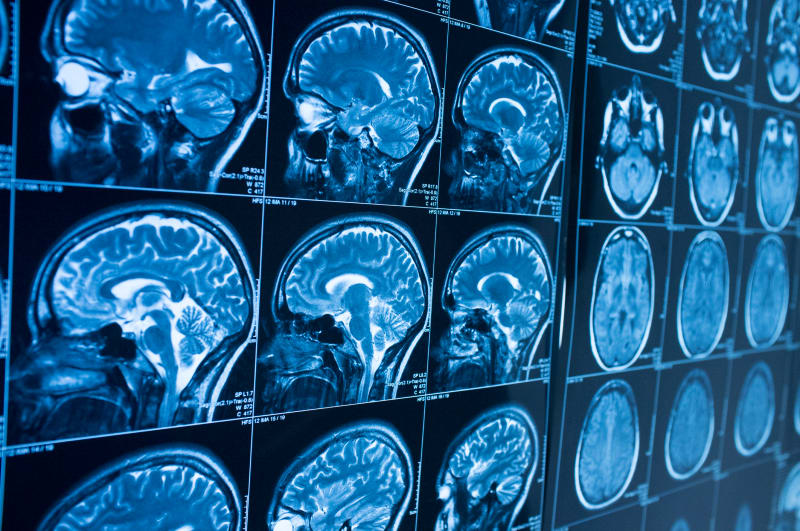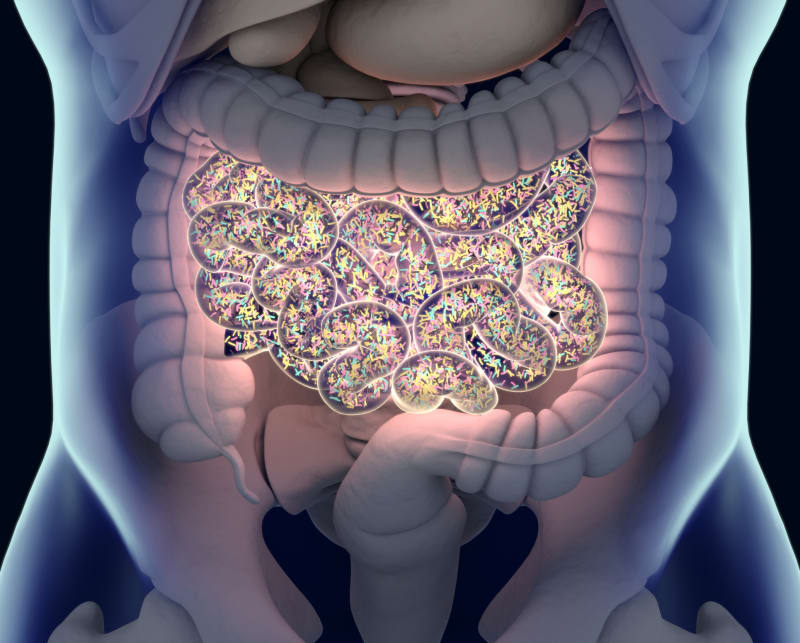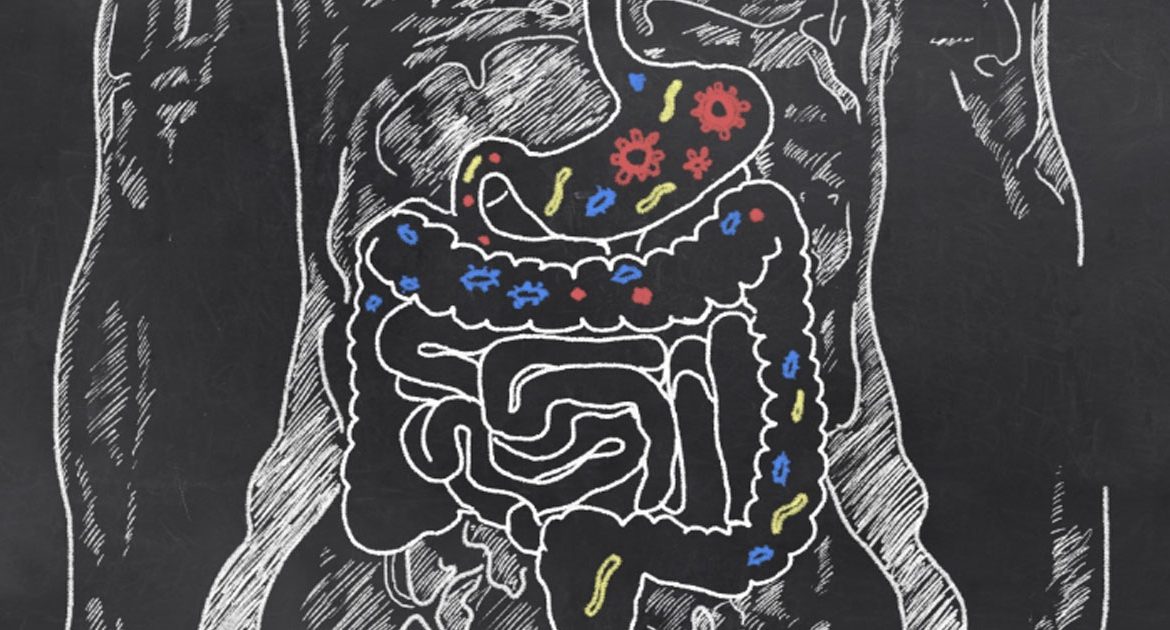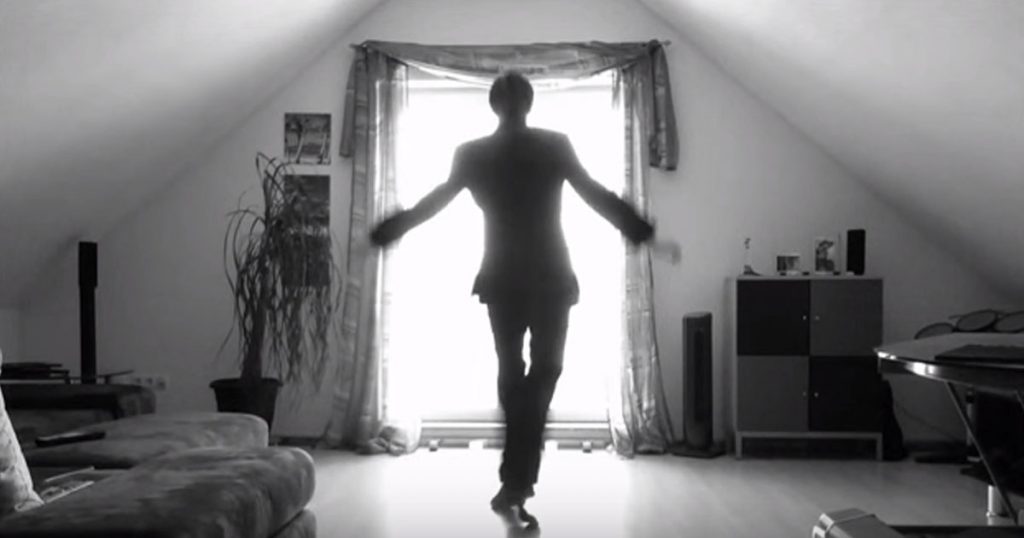We are all walking colonies of microscopic organisms. Strangely, the microbiome of the gut has a direct line to the head and the heart.
You are never alone.
Everywhere you go, you carry legions of microbes around with you. Your gut is teeming with more than 100 trillion microscopic organisms. The latest research suggests that these ever-present companions engage in an ongoing chemical conversation with your brain that can have intense effects on your emotional life.

Just ask Emeran Mayer, a gastroenterologist and director of the Oppenheimer Family Center for Neurobiology of Stress at UCLA. Mayer has been writing about the mind–gut connection for decades, and he recently wrote a book with a title that will surprise exactly no one familiar with his work. It’s called The Mind-Gut Connection: How the Hidden Conversation Within Our Bodies Impacts Our Mood, Our Choices, and Our Overall Health.
«The gut and the brain are closely linked through bidirectional signaling pathways that include nerves, hormones, and inflammatory molecules,» Mayer writes.
Rich sensory information generated in the gut reaches the brain (gut sensations), and the brain sends signals back to the gut to adjust its function (gut reactions). The close interactions of these pathways play a crucial role in the generation of emotions and in optimal gut function. The two are intricately linked.

If you’ve ever felt a rumble in the pit of your stomach while being rejected by a crush; if you’ve felt a warm glow in your belly while cuddling with a loved one; if your stomach has ever clenched up during a moment of unabashed rage—then you won’t need much convincing to accept Mayer’s point.
And the research uncovering this constant interplay between gut and mind keeps pouring in.
A recent study in the journal Psychosomatic Medicine uncovered a clear connection between the gut microbiome and regions of the brain that are associated with mood and emotion. Research like this has the potential to reframe questions of identity and even the definition of «individuality» itself, and it all starts with poop. Yes, poop.

Researchers began their study by collecting fecal samples from 40 healthy women. They sent the samples off to be tested. They weren’t just being gross; fecal samples are the best way to get a snapshot of an individual’s gut biome, because they contain a lot of the little critters that live in the digestive system.
Meanwhile, the researchers hooked the women up to a functional magnetic resonance imaging (fMRI) machine to watch their brains flash as they reacted to a series of images that were intended to spark deep feeling.

Some of the images were designed to make viewers unhappy, whereas others were more positive. They tracked each woman’s brain behavior when she looked at these images and then compared that data to the microbial zoo in the subject’s gut.
There were two particular groups of microbes that the researchers noticed immediately. Some of the women had more Bacteroides, while others were full of thriving Prevotella populations. When a Prevotella-heavy woman looked at an unhappy image, the parts of her brain associated with processing senses, emotions, and attention lit up. Her hippocampus, which tends to regulate extreme emotional reactions, remained comparatively dim.
Unsurprisingly, then, these women had much stronger negative reactions when shown the negative pictures.
Their counterparts with more Bacteroides in their guts had more active hippocampi and were able to resist getting sucked down into the doldrums just from looking at a sad picture.

Who knows if this means what it seems to mean. This study only showed correlation between gut microbiome contents and emotional response. It will take lots more science before we can assume that Prevotella makes people depressed.
Still, this whole line of research sort of explains why Mayer calls the gut «the little brain» in his book. Gut microbes really do appear to interact with the «big brain» in impactful ways.
«There are receptors throughout our bodies that respond to signals from the microbes or the metabolites they produce,» Mayer said in an interview with the Los Angeles Times.
For example, certain microbes can influence the production of the serotonin molecule, which plays a role in appetite regulation, food intake, well-being, and sleep. That gives the microbes a tremendous ability to influence overall health states.

Also, some microbe signals can activate the vagus nerve endings in the gut, which are like an information highway to the brain. Many of these effects are seen in animal studies. Researchers manipulated the microbes in the guts of mice and saw different behaviors. But these same behaviors were abolished when they cut the vagus nerve.
We have a long way to go before we start to understand the complex relationship between human emotions and the gut microbiome. But we’ve also come a long way from the early view of bacteria as simply «the enemy.»
Science writer Ed Yong explains the growing conception of microbes as natural elements of the human body in his aptly titled book I Contain Multitudes: The Microbes Within Us and a Grander View of Life.

«[We] are continuously built and reshaped by the bacteria inside us,» Yong writes. It’s a symbiotic relationship that stretches back to the very beginning of humanity, and beyond, back into our evolutionary past. Humans and the microbes that live within them evolved together.
Yong underscores this strange fact when he questions the title of his own book.
«Perhaps it is less that I contain multitudes and more that I am multitudes,» he writes.
As we learn more about how the lifeforms that we carry affect the deepest parts of our lives—how they are, in a very real way, part of what we refer to when we say «us»—it seems pretty likely that new frontiers of medicine will open up.

Maybe we’ll even discover new conceptions of selfhood. After all, our microbial companions don’t just live inside our bodies. We breathe them out in a constant cloud, and who’s to say that doesn’t thin the barrier between self and other? Or maybe even dissolve it completely?






